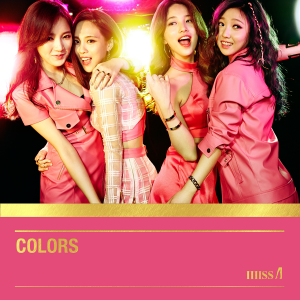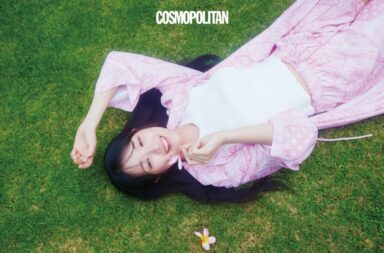If pop music could be said to have a default setting, it would probably be the love song. Sure, there are a plethora of songs about things like sexism, personal achievements, the burdens of society and its expectations, shoes, and so on, but the general expectation is “love song until proven otherwise”. And while there are all sorts of lyrical tricks that can be used when crafting a song about romance, one of my favorites is the usage of meta. A song that calls itself a love song opens a great deal of doors via the cultural associations and subtextual shorthand that have been crafted by decades of silly love songs.

One way of doing this is by comparing a new relationship to a love song, as miss A does on “Love Song”. They compare their new man to a love song, crafting a track loaded with aural references. Miss A refer to him being stuck in their heads, keeping them up at night, and driving them crazy, much in the way a particularly catchy song does.
They also flip this back the other way, calling themselves “the love song that calls you”. They attempt to seduce him, owning their desperation and lovesickness. This leans on the idea of the silly love song, a world where happiness is guaranteed if you just say yes, while contrasting with their current emotional pain, a stark reminder that this is reality. “Love Song” highlights the dangers of taking a medium meant for escapism and using it as a roadmap. Like all bad maps, it leads nowhere good.
Then there is Henry’s take on this, “Untitled Love Song”. While miss A were content to aspire to love songs, Henry is instead writing one. In this song about writing a song, Henry pours out his desire to write a love song to please his lady love:
My heart fluttered all night in front of the piano
All day, I think of how your eyes and smile will look
As you listen to this song
And without knowing, a full day passes

For Henry, this is an expression of devotion. To craft and perform a track that not only encapsulates his feelings and broadcasts them to the world, but touch her specifically, is the highest, most romantic thing he can do. “Untitled Love Song” marks the difference between a love song and their love song, one intended to prove oneself to a specific person. He is practically exploding with love, unable to think about anything else, and needs to channel it into a way that effectively communicates what is going on in his head. Here, the love song is a tool for Henry to utilize as a much as a romantic gesture.
Of course, there are occasions where that does not work out, such as Eric Nam‘s “This Is Not A Love Song”. And it is indeed not a love song. It is a heartbroken, bitter, earnest track that was supposed to be a love song, only for the relationship to end.
This is not a love song
There’s no love song after you left me
This is not a love song
I’m singing by myself and it can’t ever reach you
I’m better I’m better but
It’s hard without you
Yeah, it’s too hard without you

What was supposed to be a simple, sweet immortalization of this relationship is left hanging due to Eric Nam being dumped. He was left with a love song but no love, a half-finished ode to a love that was over. And what do you do with a love song stripped of love? If you are Eric Nam, you use it to grieve. He pines for his ex and remembers their good times, but mostly he is attempting to process his feelings and get ready to move on. Rather than leave the love song he was writing unfinished, “This Is Not A Love Song” is transformed into an act of closure, a way to close the chapter on this relationship without a half-finished project nagging at him and reminding him of those better days.
That said, sometimes the breakup does not occur until it’s too late. This is the case of Big Bang‘s “Love Song”. The scenario of ending a relationship, only to be haunted by your song is one far too familiar to most people. Dealing with the end of a relationship is already difficult, but the omnipresence of love songs does nothing but pour salt into the wound, reminders of what you have lost. But when the song is your song, the one you bonded over, that always brings to this person to your mind, it becomes far worse.
I hate this love song,
I’ll never sing it again
So I can stop thinking of you,
so I can finally forget you
Big Bang’s frustrated crooning of “I hate this love song” perfectly encapsulates the feeling of being stalked by a love song after a breakup. The love song does nothing but dredge up memories of better times, making it impossible to move on. Big Bang’s solution is to just purge the song from their life, so that they can cope with the breakup without being smacked in the face with a reminder of when they were happy every five minutes. The love song might be just fine, but there are times when the last thing you want is proof that people can be happy.
The love song has a great deal of associations. It is a symbol of happiness, of hope, of bliss. But the love song can change rapidly depending on who is hearing it, and how their romantic life has gone recently. No matter what, though, the love song is a fixture, and can inspire great conversations, and great music.
(Images via JYP Entertainment, YG Entertainment, B2M Entertainment, and SM Entertainment, Lyrics via Color Coded Lyrics)


